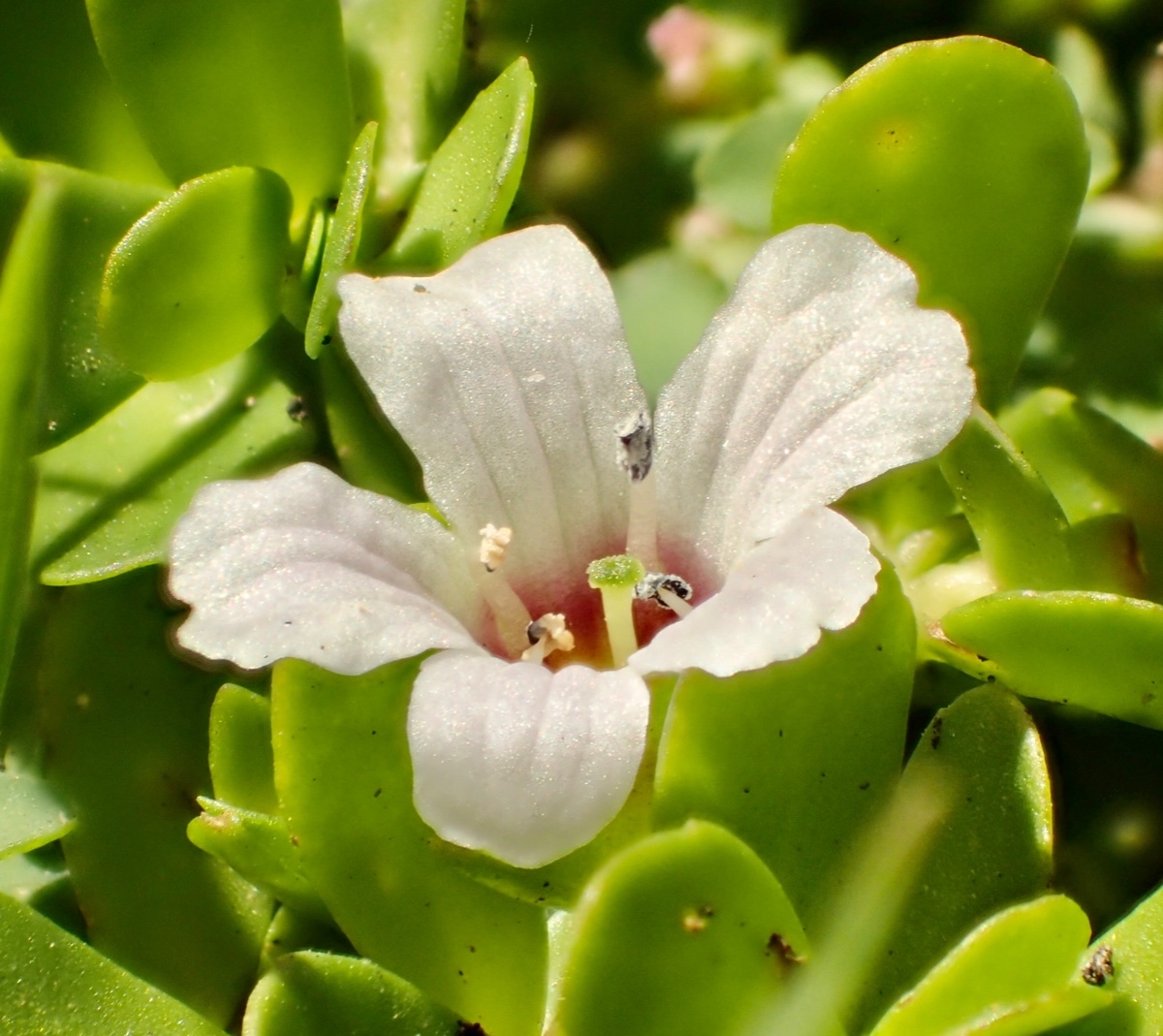Bacopa Monnieri (Brahmi): Cognitive Herb, Dosage, Nootropic Review
Bacopa Monnieri: A Neuropharmacological Review of the Nootropic Herb Called Brahmi
Bacopa monnieri, also known as brahmi, is a powerful nootropic herb long revered in Ayurvedic medicine for its cognitive-enhancing and neuroprotective properties. This article explores a comprehensive review of the nootropic herb, analyzing its effects on cognitive function, memory, stress, anxiety, and its phytochemistry.
Whether you're curious about the efficacy of bacopa monnieri, its mechanism of action within the brain, or its ideal dosage, this article provides an in-depth, evidence-based understanding.
This neuropharmacological review of the nootropic is worth reading if you're seeking natural ways to improve memory, reduce anxiety, or support brain health.
Backed by randomized controlled trials and clinical research, bacopa monnieri stands out among herbal medicine options with promising neuroprotective potential.
Outline of Article
- What Is Bacopa Monnieri and Why Is It Called Brahmi?
- How Has Bacopa Been Used in Traditional Ayurvedic Medicine?
- What Are the Active Compounds in Bacopa Monnieri?
- How Does Bacopa Monnieri Work Within the Brain?
- What Are the Cognitive Effects of Bacopa Monnieri?
- Can Bacopa Monnieri Improve Memory and Learning?
- What Is the Ideal Dosage of Bacopa Monnieri for Cognitive Enhancement?
- What Are the Potential Adverse Effects of Bacopa Monnieri?
- How Does Bacopa Compare to Other Nootropic Herbs?
- Is Bacopa Monnieri Supported by Clinical Trials and Meta-Analyses?
1. What Is Bacopa Monnieri and Why Is It Called Brahmi?
Bacopa monnieri, often referred to as brahmi, is a creeping perennial herb found in wetlands across India and Southeast Asia.
The name "brahmi" is derived from Brahma, the Hindu god of creation, reflecting its traditional use in Ayurvedic medicine to enhance consciousness and intellect.
For centuries in traditional ayurvedic medicine, bacopa has been used to improve memory, support focus, and relieve stress and anxiety. The herb is classified as a nootropic herb because of its cognitive and neuroprotective capabilities.
2. How Has Bacopa Been Used in Traditional Ayurvedic Medicine?
Used for centuries in traditional ayurvedic medicine, bacopa monnieri was prescribed as a medicinal plant to treat mental fatigue, forgetfulness, epilepsy, and even Alzheimer’s disease-like symptoms.
In classical Ayurvedic texts, brahmi was noted for balancing the "Vata" and "Pitta" doshas—biological energies that govern mental and physical processes.
The effects of brahmi were considered anti-anxiety, cognitive-enhancing, and calming. In modern times, the herb is increasingly studied in the context of randomized controlled trials to validate these ancient claims.
3. What Are the Active Compounds in Bacopa Monnieri?
The primary active components of bacopa monnieri are bacosides, particularly bacoside A and B. These triterpenoid saponins from bacopa are believed to be responsible for the neuroprotective effects of bacopa monnieri.
Recent studies have isolated new triterpenoid glycosides from bacopa, as well as new phenylethanoid glycosides from bacopa, which may contribute to its nootropic effects. One study by Garai et al. also identified three new triterpenoid glycosides, further expanding the pharmacological profile of this herbal medicine.
The phytochemistry of the herb also includes flavonoids, alkaloids, and dammarane-type triterpenoid saponins that support its anti-inflammatory effects and antioxidant activity.
4. How Does Bacopa Monnieri Work Within the Brain?
The action of bacopa monnieri within the brain involves multiple biochemical pathways. One key mechanism is the enhancement of cholinergic transmission, essential for cognition and memory formation.
The suspected cholinergic toxicity due to high doses is also under investigation, although standard doses are generally safe.
Additionally, the bacopa monnieri extract has been shown to modulate enzyme activity, including cytochrome p450, which plays a role in drug metabolism.
Bacopa monniera extract also protects against oxidative stress, supports dendritic length and branching, and helps maintain the structural microstructure in healthy older adults.
5. What Are the Cognitive Effects of Bacopa Monnieri?
The cognitive effects of bacopa monnieri are well documented. Research led by Stough et al. and Scholey shows significant cognitive enhancement, particularly in memory retention, attention, and processing speed.
In a double blind placebo controlled study, participants taking standardized bacopa monnieri extract demonstrated enhanced cognition compared to those on a placebo.
The neurocognitive effects of bacopa monnieri appear to emerge gradually, usually within 4–12 weeks of taking bacopa.
6. Can Bacopa Monnieri Improve Memory and Learning?
Several studies confirm that bacopa monnieri can improve memory in both healthy individuals and those with cognitive decline. The effects of bacopa monnieri on learning performance are especially evident in older adults.
One meta-analysis of randomized controlled trials concluded that the efficacy of bacopa monnieri is particularly strong in working memory and delayed recall. The effects comparable to pharmaceutical nootropics make bacopa an appealing natural cognitive enhancer.
7. What Is the Ideal Dosage of Bacopa Monnieri for Cognitive Enhancement?
The ideal dosage of bacopa monnieri varies based on the standardized extract used. Most clinical trials use standardized extract of bacopa containing 20% bacosides, at a daily dose of 300–450 mg.
Higher doses have been associated with mild adverse effects, such as nausea, gastrointestinal upset, and fatigue. A review by Ohtani and Mahato recommends starting with lower doses and gradually increasing to assess tolerance.
It’s crucial to use a standardized extract to ensure consistent bacoside content for reliable nootropic outcomes.
8. What Are the Potential Adverse Effects of Bacopa Monnieri?
While generally considered safe, adverse effects of bacopa monnieri can include nausea, dry mouth, cramps, and fatigue. These symptoms are usually mild and subside with dosage adjustment.
Interaction with cytochrome p450 enzymes may affect the metabolism of other drugs, especially those for epilepsy or depression. Individuals with cholinergic sensitivities or anticholinergic medication usage should consult a healthcare provider before supplementation.
Some case studies suggest suspected cholinergic toxicity due to overdose, which further underscores the importance of correct dosage.
9. How Does Bacopa Compare to Other Nootropic Herbs?
Compared to other nootropic herbs like Ginkgo biloba or Rhodiola, bacopa monnieri shows more consistent results in randomized clinical settings.
Its long history in traditional medicine and growing body of modern evidence make it a frontrunner for cognitive enhancement.
In fact, the protective effect of bacopa monniera and its impact on cognitive training on markers of brain health have drawn significant attention from researchers such as Limpeanchob, Wattanathorn, and Ingkaninan.
When combined with cognitive training, bacopa monnieri and cognitive training can positively affect markers of brain microstructure, particularly in aging populations.
10. Is Bacopa Monnieri Supported by Clinical Trials and Meta-Analyses?
Yes, the neuropharmacological review of the nootropic is strongly supported by numerous double-blind trial formats and meta-analyses of randomized controlled trials.
Notably, the j altern complement med and evid based complement alternat med journals have published findings supporting the neuroprotective and anti-anxiety effects of the extract of bacopa monnieri.
Authors such as Prabhakar, Rastogi, and Wettst have contributed significant research to the field. Their work continues to confirm that triterpenoid glycosides from bacopa monnieri offer measurable benefits to memory, stress resilience, and brain aging.
Key Takeaways: What to Remember About Bacopa Monnieri
- Bacopa monnieri (also known as brahmi) is a powerful nootropic herb used for cognitive enhancement and neuroprotection.
- It has been used for centuries in traditional ayurvedic medicine to support memory, relieve stress and anxiety, and improve focus.
- The primary active components, bacosides, are triterpenoid saponins that impact brain function, especially in areas related to learning and memory.
- Standardized extract of bacopa (300–450 mg/day with 20% bacosides) is most commonly used in studies.
- Scientific trials confirm cognitive enhancement, anti-anxiety, and neuroprotective effects of bacopa monnieri.
- Mild adverse effects like nausea and GI upset can occur, usually managed by adjusting dosage.
- It modulates enzyme pathways, including cytochrome p450, and supports brain microstructure in healthy older adults.
- Backed by randomized controlled trials, bacopa outperforms many other herbal medicine options for cognition support.
- Key researchers: Stough, Scholey, Mahato, Garai, Prabhakar, and Ohtani.
- Ongoing research into phytochemistry and newly discovered glycosides continues to expand its therapeutic profile.
Works Cited
- Stough, Con. et al. “The Chronic Effects of an Extract of Bacopa monniera (Brahmi) on Cognitive Function in Healthy Human Subjects.” Psychopharmacology, vol. 156, no. 4, 2001, pp. 481–484.
- Scholey, Andrew, and David Kennedy. “Cognitive and Mood Effects of an Extract of Bacopa monniera in Healthy Human Subjects.” Psychopharmacology, vol. 167, no. 3, 2003, pp. 399–406.
- Garai, S., et al. “Chemical Constituents of Bacopa monnieri: New Triterpenoid Glycosides.” Phytochemistry, vol. 41, no. 4, 1996, pp. 981–985.
- Ohtani, K., et al. “Saponins from Bacopa monnieri and Their Effects on the Central Nervous System.” Journal of Natural Products, vol. 58, no. 2, 1995, pp. 254–257.
- Mahato, S. B., and K. Garai. “Advances in the Chemistry of Saponins from Bacopa monnieri.” Natural Product Reports, vol. 15, no. 5, 1998, pp. 435–458.
- Limpeanchob, N., et al. “Neuroprotective Effect of Bacopa monniera.” J Altern Complement Med., vol. 14, no. 7, 2008, pp. 807–812.
- Prabhakar, S., et al. “Bacopa monnieri as a Cognitive Enhancer: A Meta-analysis.” Evid Based Complement Alternat Med., vol. 2010, Article ID 423589.













